
Marcel Carné
出生 : 1906-08-18, Paris, France
死亡 : 1996-10-31
略歴
Born in Paris, France, the son of a cabinet maker whose wife died when their son was five, Marcel Carné began his career as a film critic, becoming editor of the weekly publication, Hebdo-Films, and working for Cinémagazine and Cinémonde between 1929 and 1933. In the same period he worked in silent film as a camera assistant with director Jacques Feyder. By age 25, Carné had already directed his first short film, Nogent, Eldorado du dimanche (1929). He assisted Feyder (and René Clair) on several films through to La kermesse héroïque (1935).
Feyder accepted an invitation to work in England for Alexander Korda, for whom he made Knight Without Armour (1937), but made it possible for Carné to take over his project, Jenny (1936), as its director. The film marked the beginning of a successful collaboration with surrealist poet and screenwriter Jacques Prévert. This collaborative relationship lasted for more than a dozen years, during which Carné and Prévert created their best remembered films. Together, they were involved in the poetic realism film movement of fatalistic tragedies.
Under the German occupation of France during World War II, Carné worked in the Vichy zone where he subverted the regime's attempts to control art; several of his team were Jewish, including Joseph Kosma and set designer Alexandre Trauner. Under difficult conditions they made Carné's most highly regarded film Les Enfants du paradis (Children of Paradise, 1945) released after the Liberation of France. In the late 1990s, the film was voted "Best French Film of the Century" in a poll of 600 French critics and professionals. Post war, he and Prévert followed this triumph with what at the time was the most expensive production ever undertaken in the history of French film. But the result, titled Les Portes de la nuit, was panned by the critics and a box office failure and was their last completed film.
By the 1950s, Carné's reputation was in eclipse. The critics of Cahiers du Cinema, who became the film makers of the New Wave, dismissed him and placed his film's merits solely with Prevert. Other than his 1958 hit Les Tricheurs, Carné's postwar films met with only uneven success and many were greeted by an almost unrelenting negative criticism from the press and within members of the film industry. In 1958, Carné was the Head of the Jury at the 6th Berlin International Film Festival. Carné made his last film in 1976.
Carné was gay and made little secret about it. Several of his later films contain references to male homosexuality or bisexuality. His one-time partner was Roland Lesaffre who appeared in many of his films.
In 1989 a book was published by Edward Baron Turk as part of the Harvard Film Studies that told his story under the title Child of Paradise: Marcel Carné and the Golden Age of French Cinema.
Marcel Carné died in 1996 in Clamart, Hauts-de-Seine, and was buried in the Cimetière Saint-Vincent in Montmartre.
Description above from the Wikipedia article Marcel Carné, licensed under CC-BY-SA, full list of contributors on Wikipedia.

Self (archive footage)
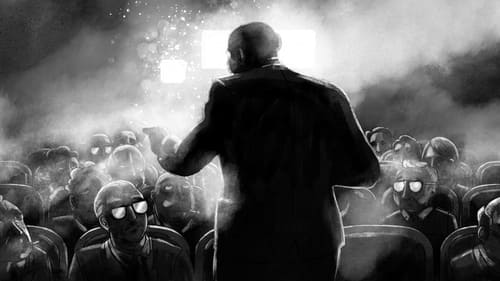
Self (archive footage)
Paris, 1940. German occupation forces create a new film production company, Continental, and put Alfred Greven – producer, cinephile, and opportunistic businessman – in charge. During the occupation, under Joseph Goebbels’s orders, Greven hires the best artists and technicians of French cinema to produce successful, highly entertaining films, which are also strategically devoid of propaganda. Simultaneously, he takes advantage of the confiscation of Jewish property to purchase film theaters, studios and laboratories, in order to control the whole production line. His goal: to create a European Hollywood. Among the thirty feature films thus produced under the auspices of Continental, several are, to this day, considered classics of French cinema.

Self
An interview of French film director Marcel Carné by Didier Decoin

Director
The basilica of Monreale, near Palermo in Sicily, and its thousands of mosaics that tell scenes from the Bible.
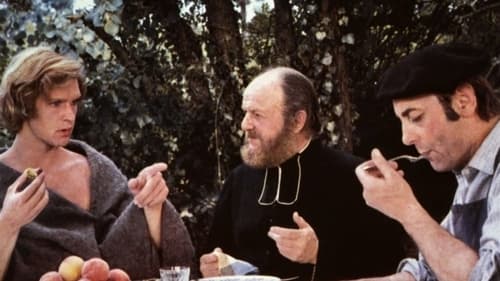
Screenplay
One morning, the rector of a small French village comes across a young man, lying unclothed and unconscious on a deserted beach. Intrigued, the rector has the young man carried back to his home. When he awakes the stranger calmly identifies himself as Jean, an angel who has just arrived on Earth. Naturally, the rector doesn’t believe this, but decides to humour the young man. At first, Jean’s arrival in the village causes no upset. He is a harmless soul, full of good intentions and capable of only the kindest deeds. But then the villagers grow wary of him, and this wariness turns to outright hostility when Jean unwittingly causes an accident...

Director
One morning, the rector of a small French village comes across a young man, lying unclothed and unconscious on a deserted beach. Intrigued, the rector has the young man carried back to his home. When he awakes the stranger calmly identifies himself as Jean, an angel who has just arrived on Earth. Naturally, the rector doesn’t believe this, but decides to humour the young man. At first, Jean’s arrival in the village causes no upset. He is a harmless soul, full of good intentions and capable of only the kindest deeds. But then the villagers grow wary of him, and this wariness turns to outright hostility when Jean unwittingly causes an accident...
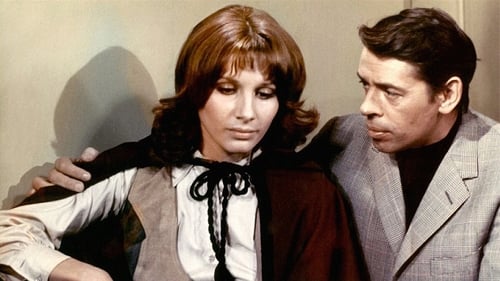
Screenplay
A judge investigating police corruption finds that the deeper he digs, the more roadblocks he finds.

Director
A judge investigating police corruption finds that the deeper he digs, the more roadblocks he finds.
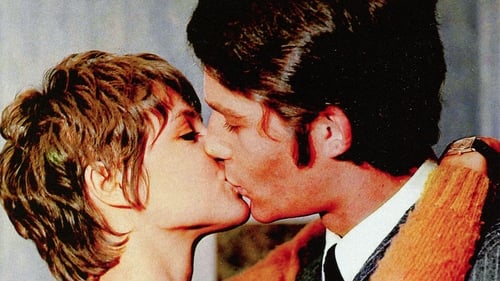
Writer
Alain, "a young wolf", elegant and racy, is maintained by the princess Linzani. At the same time, he goes out with a girl of his age, Sylvie, who despite her bold attitude has never had a lover.

Director
Alain, "a young wolf", elegant and racy, is maintained by the princess Linzani. At the same time, he goes out with a girl of his age, Sylvie, who despite her bold attitude has never had a lover.

Self
Documentary about the making of Marcel Carne's 1945 film Children of Paradise (France), interviewing the director, the actors and production designer, as well as other French directors.
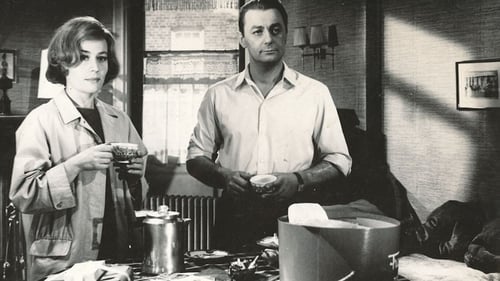
Writer
When his wife leaves him, a young French actor, François Combe, moves to New York to work for a television company. One evening, he meets an attractive young woman, Kay Larsi, in a bar.

Director
When his wife leaves him, a young French actor, François Combe, moves to New York to work for a television company. One evening, he meets an attractive young woman, Kay Larsi, in a bar.
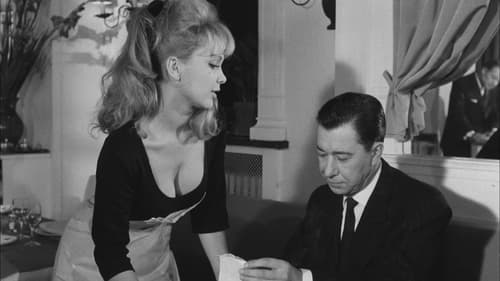
Screenplay
In a building close to the Place de la Contrescarpe in Paris, a tale of criss‑crossings in turn romantic, gourmet, interested or mystical, between an Italian gigolo and a nightclub hostess, a family of butchers and an apprentice rocker, a mystic tailor, a writer sending himself telegrams, an alert paralytic woman, a thoughtful concierge, a bird breeder and a just‑out‑of‑jail hooligan. Little by little each one discovers each other’s more or less troubled history… when a mysterious death introduces the Police within this huis clos, hastens disclosure of well‑kept secrets and ruffle this little World.

Director
In a building close to the Place de la Contrescarpe in Paris, a tale of criss‑crossings in turn romantic, gourmet, interested or mystical, between an Italian gigolo and a nightclub hostess, a family of butchers and an apprentice rocker, a mystic tailor, a writer sending himself telegrams, an alert paralytic woman, a thoughtful concierge, a bird breeder and a just‑out‑of‑jail hooligan. Little by little each one discovers each other’s more or less troubled history… when a mysterious death introduces the Police within this huis clos, hastens disclosure of well‑kept secrets and ruffle this little World.
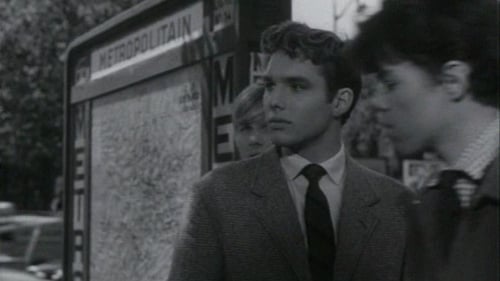
Writer
Director Marcel Carné's 1960 look at juvenile delinquency, a pressing social issue in France at that time. Based on "Tomboy", an American pot-boiler novel by Hal Elison.

Director
Director Marcel Carné's 1960 look at juvenile delinquency, a pressing social issue in France at that time. Based on "Tomboy", an American pot-boiler novel by Hal Elison.

Adaptation
Bob Letellier, a good looking rich kid who studies science, makes the acquaintance of Alain, a cynical and immoral young man. The latter introduces him to the existentialist circles of Saint-Germain-des-Prés. Bob is invited to a party and becomes Clo's lover, a rich heiress.

Scenario Writer
Bob Letellier, a good looking rich kid who studies science, makes the acquaintance of Alain, a cynical and immoral young man. The latter introduces him to the existentialist circles of Saint-Germain-des-Prés. Bob is invited to a party and becomes Clo's lover, a rich heiress.

Director
Bob Letellier, a good looking rich kid who studies science, makes the acquaintance of Alain, a cynical and immoral young man. The latter introduces him to the existentialist circles of Saint-Germain-des-Prés. Bob is invited to a party and becomes Clo's lover, a rich heiress.
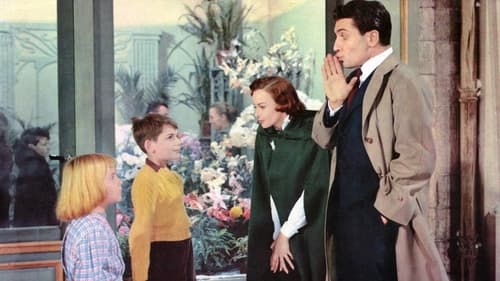
Writer
One Christmas Eve, a carefree young man, Eric, arrives in a small provincial town. Here, he meets Julien, a bar pianist who is his exact double. Julien is in love with Marinette, a pretty waitress, but he is too shy to make any romantic overtures. Eric decides to give the course of true love a helping hand by pretending to be Julien. Meanwhile, Eric’s fabulously wealthy uncle has sent his minions out to bring him back home, so that he may celebrate Christmas in the bosom of his family.

Director
One Christmas Eve, a carefree young man, Eric, arrives in a small provincial town. Here, he meets Julien, a bar pianist who is his exact double. Julien is in love with Marinette, a pretty waitress, but he is too shy to make any romantic overtures. Eric decides to give the course of true love a helping hand by pretending to be Julien. Meanwhile, Eric’s fabulously wealthy uncle has sent his minions out to bring him back home, so that he may celebrate Christmas in the bosom of his family.
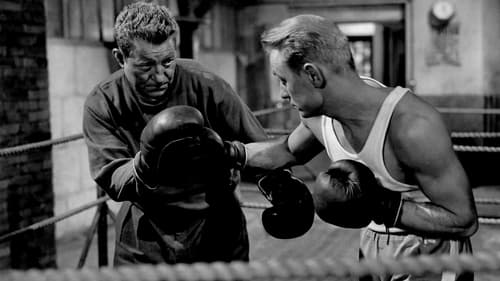
Screenplay
Victor Le Garrec, a former boxer, runs a gym in Paris while dreaming of finding an aspiring champion who will reach the goals he was never able to achieve.

Director
Victor Le Garrec, a former boxer, runs a gym in Paris while dreaming of finding an aspiring champion who will reach the goals he was never able to achieve.
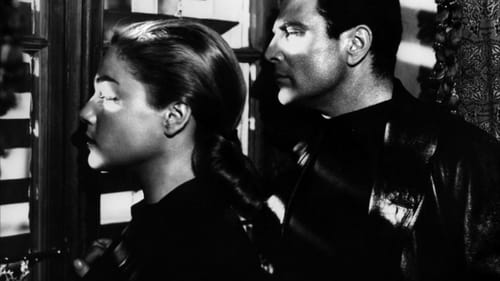
Adaptation
Star-crossed lovers Thérèse (Simone Signoret) and Laurent (Raf Vallone) think they've gotten away with murder after Thérèse's weakling husband "falls" from a speeding train. But when forced to contend with a blackmailer's demands and the mute accusations of Thérèse's mother-in-law (French stage and screen diva Sylvie, in a scene stealing performance), it's only a matter of time before the law, their passion or blind chance trips them up.

Director
Star-crossed lovers Thérèse (Simone Signoret) and Laurent (Raf Vallone) think they've gotten away with murder after Thérèse's weakling husband "falls" from a speeding train. But when forced to contend with a blackmailer's demands and the mute accusations of Thérèse's mother-in-law (French stage and screen diva Sylvie, in a scene stealing performance), it's only a matter of time before the law, their passion or blind chance trips them up.
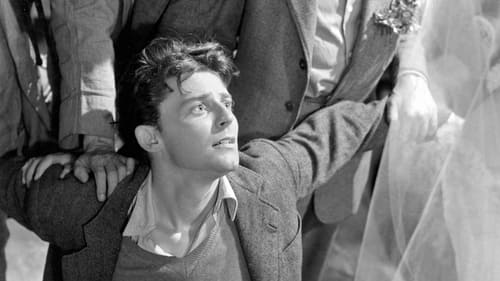
Adaptation
Michel has stolen from his employer, Mr Bellanger, for the love of Juliette. He is now in jail. One night, while sleeping in his cell, he wakes up all of a sudden, the gates open and he finds himself in a strange village where all the inhabitants have lost their memory. There, meets Juliette again who seems to agree to marry a powerful man, who might well be Bluebeard...

Director
Michel has stolen from his employer, Mr Bellanger, for the love of Juliette. He is now in jail. One night, while sleeping in his cell, he wakes up all of a sudden, the gates open and he finds himself in a strange village where all the inhabitants have lost their memory. There, meets Juliette again who seems to agree to marry a powerful man, who might well be Bluebeard...
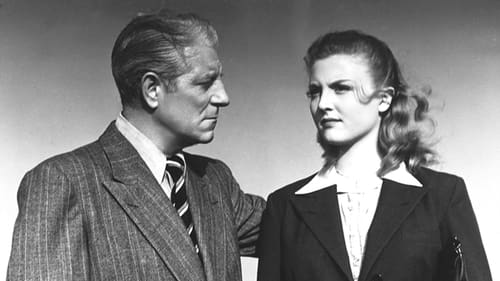
Writer
Henri Chatelard is well in his forties, owns a restaurant and a cinema in the city, and appreciate women. When he meets Marie, a 18ish stronghead who just lost her father in a small fishermen village, it is not clear who is the hunter and who is the prey.

Director
Henri Chatelard is well in his forties, owns a restaurant and a cinema in the city, and appreciate women. When he meets Marie, a 18ish stronghead who just lost her father in a small fishermen village, it is not clear who is the hunter and who is the prey.

Director
Children imprisoned during pre-war France decide to escape.

Director
Paris, during the winter after its Liberation: Jean Diego meets up with his friend Raymond Lecuyer again. A tramp predicts Jean will meet the most beautiful girl in the world, and that same evening Jean meets Malou. But he soon discovers that her brother Guy was the one that gave his friend Raymond away to the Gestapo...
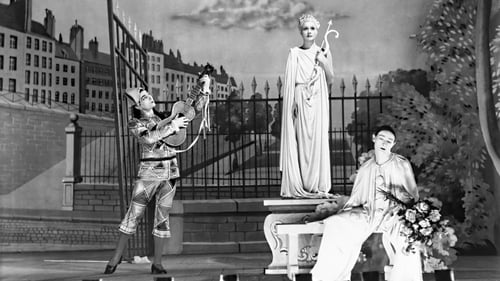
Director
1840年代のパリ・犯罪大通りを舞台に繰り広げられる恋愛絵巻……。ナチス占領下のフランスで、映画人が抑圧の鬱憤を晴らすかのごとく製作した、映画史上に残る名作。
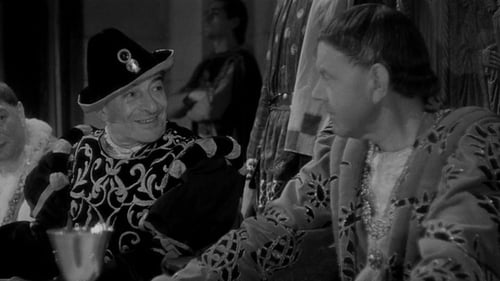
Director
At the end of the 15th century, two traveling minstrels Gilles and Dominique come to the castle of Baron Hugues. Gilles charms Anne, Hugues' daughter, while Dominique charms both Hugues and Anne's fiance. Gilles and Dominique are not really in love: they were sent by the Devil to test desperate people. But Anne is so pure that Gilles is caught in his own trap... How will they fight against the Devil?
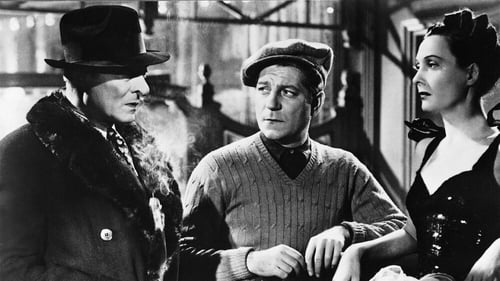
Director
After committing a murder, a man locks himself in his apartment and recollects the events the led him to the killing.

Director
A young couple, Renée and Pierre, take one night a room at the Hôtel du Nord, in Paris, near the canal Saint-Martin. They want to die together, but having shot at Renée, Pierre lacked the courage to finish the job and fled. Another customer, Monsieur Edmond, a procurer, rescues her. When Renée goes out of the hospital, she is hired as a waitress at the hotel. Monsieur Edmond falls in love with her, but Renée is still thinking of Pierre...
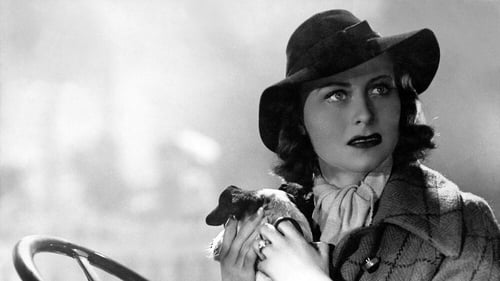
Director
港町ル・アーブル外人部隊の脱走兵ジャン(ギャバン)はネリー(モルガン)と知り合う。彼女は名付け親のザベル(シモン)にしつこくつきまとわれて困っていた。波止場の小屋にしけ込んだジャン。生きることに嫌気のさしていた仲間の画家ミシェルは彼にパスポートを残して自殺する。お蔭でベネズエラ行きの手はずをととのえたジャンは出航の前日をネリーと共に過ごすが、町でヤクザのルシアン(ブラッスール)に絡まれ、逆に彼を叩きのめす。故国で最後の夜はネリーと共に。そして、ネリーに食い下がるザベルを振り払ったジャンだが、昨日の仕返しに来たルシアンの凶弾に倒れる……。
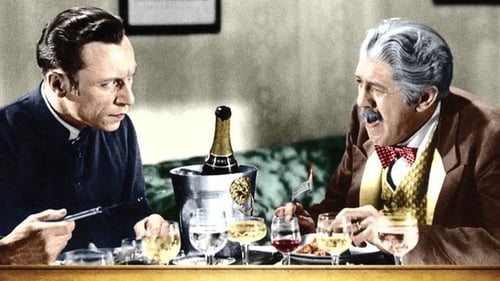
Director
A French farce set in Victorian London where a botanist and his wife get into trouble when they pretend to go missing in order to hide from their sanctimonious cousin - an Anglican bishop who is leading a campaign against such writing.

Director
When her fiancé breaks off their engagement, Danielle leaves London and returns to her mother, Jenny, in Paris. With her business partner Benoît, Jenny runs what appears to be a respectable nightclub – it is in fact a place where wealthy men can buy the favours of attractive young women. Oblivious to her mother's professional and personal life, Danielle meets a handsome young man named Lucien, and falls in love with him – not realising that he is Jenny's lover...

Dialogue
A rich Brazilian, Mendoza, visited Paris in 1900 and was romantically involved with the star of Offenbach's 'La vie parisienne' which was playing at the time. Thirty five years later, he returns with his son and granddaughter, who is engaged to a young Frenchman. But Mendoza's puritanical son forbids the marriage. Mendoza and the actress's friends conspire to change his mind and convert him to 'Parisian life.'

Assistant Director
Flanders, Hispanic Monarchy, 1616. The inhabitants of the small town of Boom are busy organizing the annual local festivities when the arrival of the Duke of Olivares, who rules the country on behalf of the King Philip III of Spain, is announced. While the male citizens cowardly surrender to panic, the brave female citizens decide to become the best hosts the Spaniards can ever meet. (German version of the French film La Kermesse héroïque, 1935.)
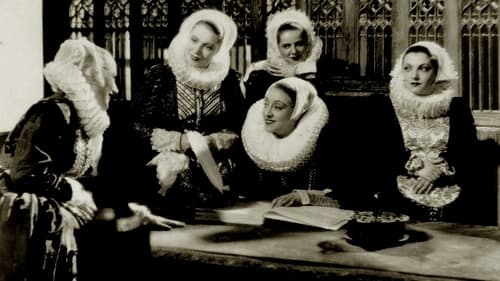
Assistant Director
Flanders, Hispanic Monarchy, 1616. The inhabitants of the small town of Boom are busy organizing the annual local festivities when the arrival of the Duke of Olivares, who rules the country on behalf of the King Philip III of Spain, is announced. While the male citizens cowardly surrender to panic like rats on a sinking ship, the brave female citizens, led by the bold wife of the burgomaster, decide to become the best hosts the Spaniards can ever meet.

Director
A short, early travel documentary about Nogent. The film starts with images of trains, buses, and railway tracks, which are juxtaposed to shots of deserted Paris streets, empty factories, and typewriters packed in slipcovers. It is a natural landscape organized by industrial infrastructure and populated by the urban crowds who are swimming, rowing, canoeing, sailing, fishing, or biking.
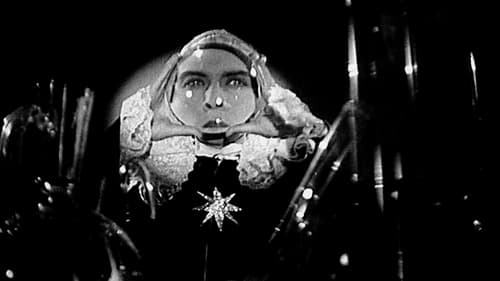
Assistant Director
Paris, France, 1784. After living many tribulations, Joseph Balsamo, known as Count Cagliostro, an infamous adventurer, enigmatic magician and necromancer, experienced physician and ruthless swordsman, triumphs among the members of the decadent French aristocracy. But a bold foretelling about a very prominent noblewoman causes his fall in disgrace… (Partially lost film.)
























